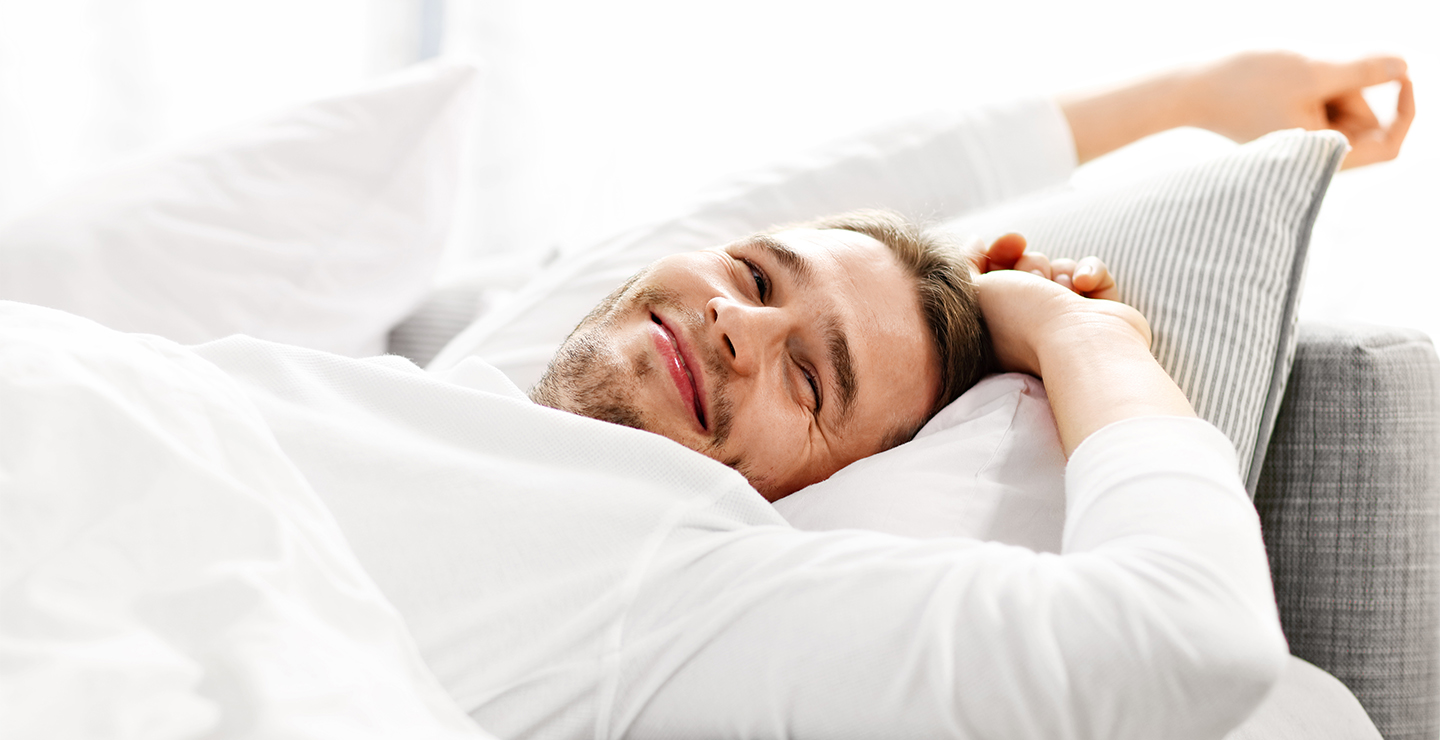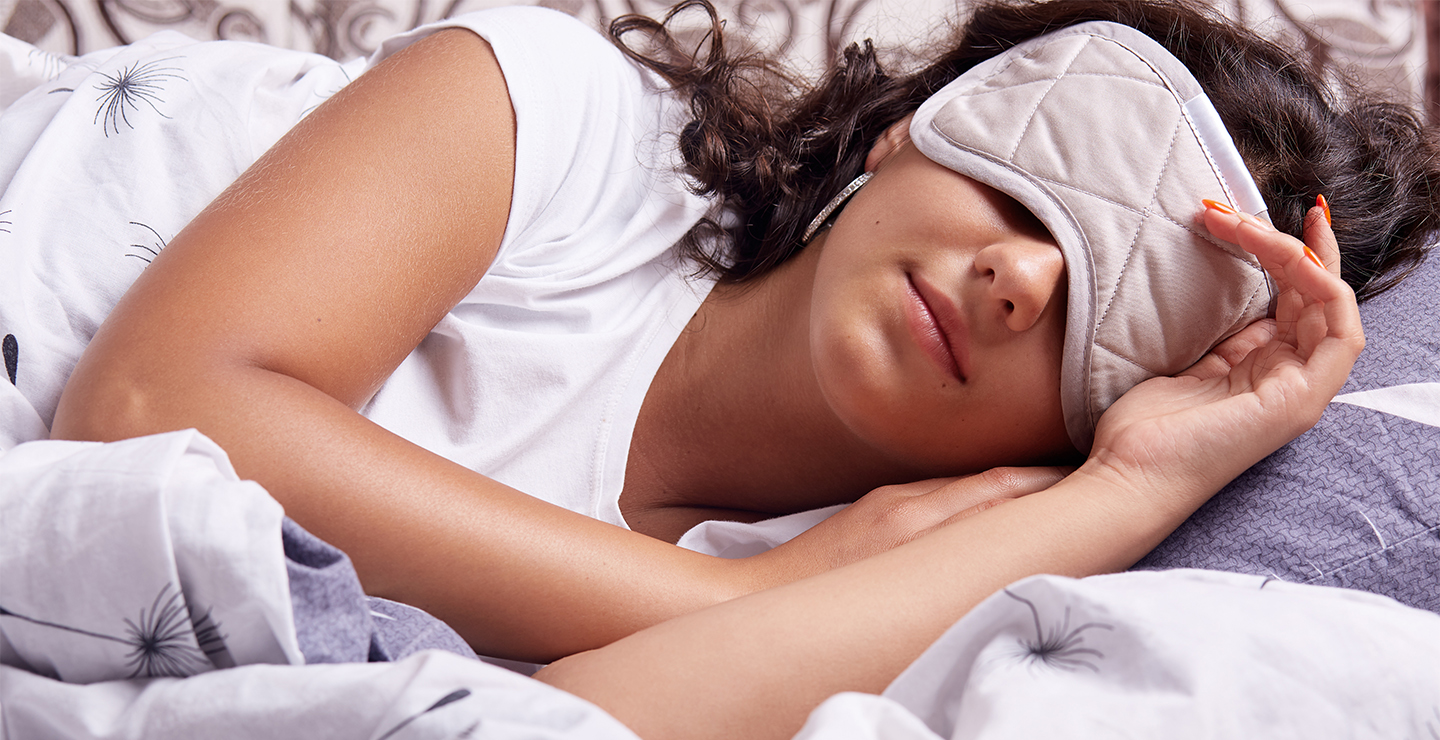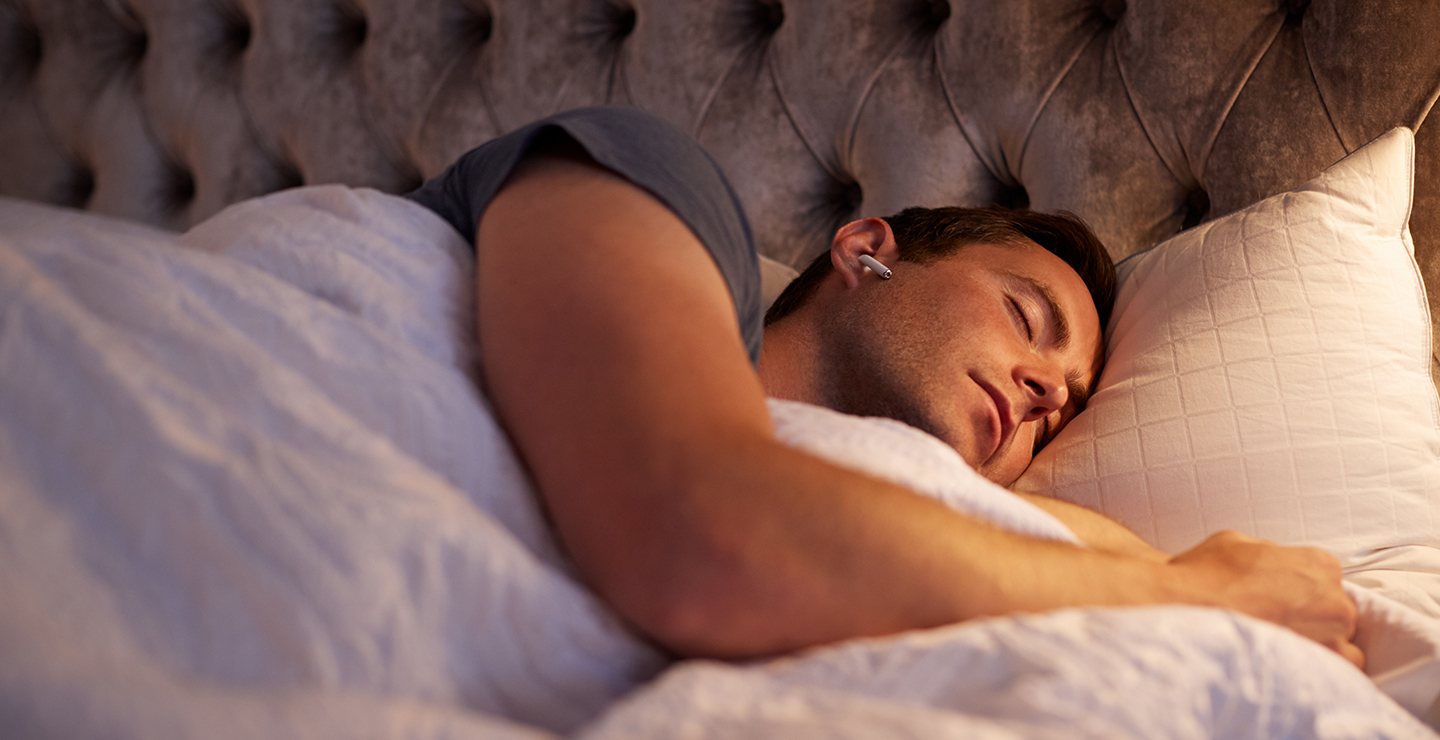Revenge Bedtime Procrastination: Are You a Victim?
You’ve probably experienced revenge bedtime procrastination without knowing it.
Struggles & Remedies


You’ve probably experienced revenge bedtime procrastination without knowing it. If you’ve ever been up late at night and shunned sleep in favor of scrolling endlessly your news feeds, hopped on social media for “just a minute” that lasts for hours, watched just one more episode—or three of four—of new binge-worthy show when you should be getting restful sleep, you may actually be creating an unhealthy habit of revenge bedtime procrastination.1
What is Revenge Bedtime Procrastination?
Revenge bedtime procrastination is a form of behavioral sleep deprivation that results when we purposefully give up sleep in favor of activities we’d rather be doing, that we don’t have time for otherwise.2 It’s how many of us get that vital “me” time we can never find time for during our busy, often hectic daytime hours.
Revenge bedtime procrastination is understandable. It occurs because most of our time is taken up with activities that we must do, like work and all the tasks that go with it including time-consuming commutes. Maybe we also have to take care of other people, like our kids or elderly family members. But with all of these responsibilities, there’s no time in all of that for our own pleasures, hobbies, or entertainment—unless we sacrifice sleep.
Revenge bedtime procrastination is essentially the same phenomenon as bedtime procrastination, a concept first investigated and defined by Dr. Floor Kroese at the Utrecht University in 2014.2, 3 It wasn’t until 2020 that journalist Daphne Lee added “revenge” to the mix, a reference to the Chinese phrase bàofùxìng áoyè, “retaliatory staying up late.”4
It’s important to note that revenge bedtime procrastination can contribute to insufficient sleep, negatively impacting mental and physical performance and health.5 It can disrupt our circadian rhythm, the natural and innate cycle of sleeping and waking regulated by the brain.6 Revenge bedtime procrastination does this by confusing cues that should be associated with sleep with environmental cues for wakefulness.6
Typically, when we’re getting ready to sleep, we stop paying close attention to much of anything, tune out from the environment around us, and drift into sleep. When we revenge bedtime procrastinate, we keep attending to our surroundings, forcing our brains to at least attempt to stay alert and wakeful.
Over time, habitually being awake when we should be sleeping may lead to sleep deficiency.
Revenge bedtime procrastination is essentially the same phenomenon as bedtime procrastination, a concept first investigated and defined by Dr. Floor Kroese at the Utrecht University in 2014.2, 3 It wasn’t until 2020 that journalist Daphne Lee added “revenge” to the mix, a reference to the Chinese phrase bàofùxìng áoyè, “retaliatory staying up late.”4
It’s important to note that revenge bedtime procrastination can contribute to insufficient sleep, negatively impacting mental and physical performance and health.5 It can disrupt our circadian rhythm, the natural and innate cycle of sleeping and waking regulated by the brain.6 Revenge bedtime procrastination does this by confusing cues that should be associated with sleep with environmental cues for wakefulness.6
Typically, when we’re getting ready to sleep, we stop paying close attention to much of anything, tune out from the environment around us, and drift into sleep. When we revenge bedtime procrastinate, we keep attending to our surroundings, forcing our brains to at least attempt to stay alert and wakeful.
Over time, habitually being awake when we should be sleeping may lead to sleep deficiency.
3 Signs You’re a Revenge Bedtime Procrastinator
People revenge bedtime procrastinate for different reasons. Sometimes people have jobs that are so all-consuming they only find time for themselves in the small hours of the night. Parents with small children may only find time to engage in leisure activities after the kids have been put to bed. Students may have classes and work all day yet stay up all night to socialize.
If you’re wondering whether or not you’re a revenge bedtime procrastinator, check out these signs of putting “me time” ahead of “zzz time.”
These are the essential components of Revenge Bedtime Procrasination:3, 7
If you’re wondering whether or not you’re a revenge bedtime procrastinator, check out these signs of putting “me time” ahead of “zzz time.”
These are the essential components of Revenge Bedtime Procrasination:3, 7
1. You delay going to sleep.
Choosing to watch just one more episode or cross off a few items on your to-do list when you know you won’t get enough sleep is part of revenge bedtime procrastination. Making a choice to put off going to sleep feels like having at least some control over your activities, and by extension, having a little more control over your life. It’s this element of choice that may in fact be the most appealing part of revenge bedtime procrastination.
2. There is not a valid reason for you to delay going to bed.
Staying up late to catch a red-eye flight isn’t revenge bedtime procrastination. Sure, you might not get enough sleep that night, but there’s a specific reason for it. Unlike bedtime delays that may be necessary, or beyond our control, with revenge bedtime procrastination the delay is a deliberate choice to indulge in “me” time.
3. You understand that staying up late will have negative consequences.
Although we may find entertainment by staying up late in the nighttime, we know we’re going to be miserable in the daytime—yet we continue to indulge in leisure activities through revenge bedtime procrastination.
Other signs of revenge bedtime procrastination include trouble getting up in the morning and intense daytime sleepiness, often accompanied by a surge of energy in the early evening as the procrastination becomes a habit.
Other signs of revenge bedtime procrastination include trouble getting up in the morning and intense daytime sleepiness, often accompanied by a surge of energy in the early evening as the procrastination becomes a habit.
Why You Shouldn’t Revenge Bedtime Procrastinate
There aren’t really any benefits to revenge bedtime procrastination. It does allow a person to get in some time to themselves. But revenge bedtime procrastination also involves compromising in the short term. Over time, the procrastination can become a habit that is hard to kick from your daily routine. Like all forms of procrastination, we tell ourselves we’ll do the responsible thing later, but there’s no catching up on sleep.
Revenge bedtime procrastination reduces the amount of sleep a person gets, which has significant and negative consequences in the short term. Even worse, the effects of insufficient sleep are cumulative and become a bigger issue over time.
An occasional late night followed by an early morning isn’t problematic, but remember, revenge bedtime procrastination refers to habitually skipping sleep, leading to chronic sleep deprivation.
For adults, signs of sleep deficiency may result when a person gets less than 7 hours of sleep a night.8
Revenge bedtime procrastination reduces the amount of sleep a person gets, which has significant and negative consequences in the short term. Even worse, the effects of insufficient sleep are cumulative and become a bigger issue over time.
An occasional late night followed by an early morning isn’t problematic, but remember, revenge bedtime procrastination refers to habitually skipping sleep, leading to chronic sleep deprivation.
For adults, signs of sleep deficiency may result when a person gets less than 7 hours of sleep a night.8
How Harmful is Sleep Deficiency?
Sleep isn’t an indulgence. Sleep is as important as food or water. Consider that our brains cycle through several phases or stages of sleep.9 They occur in a sequence and have regular durations. Regardless of when we go to sleep, these phases of sleep start at the beginning of the cycle and progress in order,9 which means if you do not allow time for sleep, there’s either not enough time to get through all phases or a phase will be interrupted by our alarm clocks.
Sleep is a part of the process by which information and experiences are transferred into long-term memory. Sleep is also a requirement for facts, processes, and behaviors we are trying to learn, to become fixed.9
Sleep is also vitally important for maintaining and regulating your circadian rhythm. Your body’s circadian clock is important for preparing your body to perform multiple functions, including when to exercise, feed, digest food, and sleep.10 A disrupted circadian rhythm can leave you feeling groggy when you wake up or restless when you should be asleep.
Sleep deficiency or deprivation can be harmful and contribute to physical and mental concerns—both in the near and in the longer term. Initial signs of occasional sleep loss may include:11
Sleep is a part of the process by which information and experiences are transferred into long-term memory. Sleep is also a requirement for facts, processes, and behaviors we are trying to learn, to become fixed.9
Sleep is also vitally important for maintaining and regulating your circadian rhythm. Your body’s circadian clock is important for preparing your body to perform multiple functions, including when to exercise, feed, digest food, and sleep.10 A disrupted circadian rhythm can leave you feeling groggy when you wake up or restless when you should be asleep.
Sleep deficiency or deprivation can be harmful and contribute to physical and mental concerns—both in the near and in the longer term. Initial signs of occasional sleep loss may include:11
- Fatigue, feeling tired or exhausted
- Irritability, feeling frustrated or cranky
- Impaired memory
- Poor ability to learn or slowed learning
- Poor performance at work or school
Over time, sleep deprivation, may negatively impact weight, immune function, and that are linked to development of chronic health issues.11, 12
Myths about Sleep Deficiency and Deprivation
These are some of the more well-known myths about sleep:
1. You can catch up on sleep.
Lost sleep is simply lost, and when we consistently lose sleep, our health will suffer.
2. Napping can make up for sleep missed during the night.
A 30-minute nap can be refreshing, but it won’t make up for sleep lost during the night, and regular long naps may interfere with our circadian rhythms.
3. Six hours is enough sleep; there is no consequence.
The average healthy adult needs 7 to 9 hours of sleep each night.8 Getting less than thatmay lead to sleep deficiency or deprivation for most adults.11
6 Ways to Get Your Sleep Routine Back on Track
Reframing how we view sleep is a big part of getting our sleep routine back on track. Consider that many of us spend most of our time at work or preparing for work. We come home, attend to our activities of daily living, then go to bed, only to wake up and repeat that cycle, over and over.
You can take back control of your sleep habits. Practicing good sleep hygiene is essential for getting your sleep cycle back on track. ZzzQuil is here to help you on your journey to your best sleep. Sign up for ZzzQuil’s Better Sleep in 1-2-Zzz to learn more about how you can optimize your sleep routine.
Keep reading for five tips to help improve your sleep hygiene:13, 14
You can take back control of your sleep habits. Practicing good sleep hygiene is essential for getting your sleep cycle back on track. ZzzQuil is here to help you on your journey to your best sleep. Sign up for ZzzQuil’s Better Sleep in 1-2-Zzz to learn more about how you can optimize your sleep routine.
Keep reading for five tips to help improve your sleep hygiene:13, 14
1. Develop a “going to bed” routine
It helps to go about the same helpful and soothing “shut down” tasks every night before bed. Establishing reliable cues for sleep helps the body wind down and shift into a less active mode, preparing us for a good night’s sleep.
2. Follow a sleep schedule
Have a set time for going to bed and getting up, even on weekends. This can be a real challenge, but your body’s natural rhythms will become accustomed to a consistent bedtime. This makes both falling asleep and waking up easier.
3. Make your bedroom a sleep-only zone
You need to associate your bedroom and bed with sleep—not entertainment or work. This means using your bed only for sleep and sex.
- Don’t drag your laptop into your sleep zone with you—no working in bed! That goes for our cell phones, too.
- Don’t watch TV or read in bed either, particularly on a mobile device. The blue light emitted by digital devices is stimulating to the areas of the brain that process the intensity of light. This stimulation while we’re trying to wind down for the night can disrupt the production of melatonin, a hormone necessary for sleep.
4. Keep your bedroom cool, dark, and quiet.
Keep your bedroom cool. Most people prefer sleeping in a cool room. A temperature between 65 and 70 may be optimal for many people. You should also keep your bedroom dark and dim or turn off extra light and consider using a white noise machine to lull you to sleep or cover any distracting noises that may wake you up.
5. Avoid large meals and caffeine before bed.
Ideally avoid these sleep disruptors well before bedtime.15 Avoid large meals before bedtime, and go easy on any beverage, including water. Multiple trips to the bathroom aren’t conducive to falling and staying asleep.
6. Consider taking a melatonin supplement to help you fall asleep if needed.
Melatonin is a hormone produced by the brain that helps regulate our waking and sleeping cycles, called circadian rhythm. But some nights you may need help falling asleep. ZzzQuil PURE Zzzs works naturally with your body to support sleep and is specially formulated with an optimal level of melatonin, shown to help regulate your sleep cycle without next day grogginess.*
References:
- Suni E. What is “revenge bedtime procrastination?” Sleep Foundation. Accessed August 8, 2022. Available at: https://www.sleepfoundation.org/sleep-hygiene/revenge-bedtime-procrastination
- Kroese F., De Ridder, D, et al. Bedtime procrastination: introducing a new area of procrastination. Frontiers in Psychology. Accessed August 8, 2022. Available at: doi.org/10.3389/fpsyg.2014.00611
- Magalhães P, Cruz V, Teixeira S, Fuentes S, Rosário P. An Exploratory Study on Sleep Procrastination: Bedtime vs. While-in-Bed Procrastination. Int J Environ Res Public Health. Accessed August 8, 2022. Available at: https://www.ncbi.nlm.nih.gov/pmc/articles/PMC7460337/
- @daphneklee. Learned a very relatable term today: “報復性熬夜” (revenge bedtime procrastination), a phenomenon in which people who don’t have much control over their daytime life refuse to sleep early in order to regain some sense of freedom during late night hours. Twitter. Accessed August 8, 2022. Available at: https://twitter.com/daphnekylee/status/1277101831693275136
- Kroese FM, Evers C, Adriaanse MA, de Ridder DTD. Bedtime procrastination: A self-regulation perspective on sleep insufficiency in the general population. J Health Psychol. Accessed August 8, 2022. Available at: https://pubmed.ncbi.nlm.nih.gov/24997168/
- Kadzikowska-Wrzosek R. Self-regulation and bedtime procrastination: The role of self-regulation skills and chronotype. Personality and Individual Differences. Accessed August 8, 2022. Available at: https://doi.org/10.1016/j.paid.2018.02.015. https://www.sciencedirect.com/science/article/pii/S0191886918300813))
- Kroese FM, Nauts S, Kamphorst BA, Anderson JH, de Ridder DTD. Chapter 5 - Bedtime Procrastination: A Behavioral Perspective on Sleep Insufficiency, Health, and Well-Being. Academic Press. Accessed August 8, 2022. Available from: https://dspace.library.uu.nl/bitstream/handle/1874/380245/3s2.0B9780128028629000050_main.pdf?sequence=1
- Hirshkowitz M, Whiton K, Albert SM, et al. National Sleep Foundation's sleep time duration recommendations: methodology and results summary. Sleep Health. Accessed August 8, 2022. Available from: https://pubmed.ncbi.nlm.nih.gov/29073412/.
- U.S. Department of Health and Human Services. National Institutes of Health (NIH). National Institute of Neurological Disorders and Stroke (NINDS). Brain basics: Understanding sleep. National Institute of Neurological Disorders and Stroke. Accessed August 8, 2022. Available from: https://www.ninds.nih.gov/health-information/patient-caregiver-education/brain-basics-understanding-sleep.
- U.S. Department of Health and Human Services. National Institutes of Health (NIH). National Institute of General Medicine Sciences (NIGMS). Circadian Rhythms. Accessed August 8, 2022. Available from: https://www.nigms.nih.gov/education/fact-sheets/Pages/circadian-rhythms.aspx.
- U.S. Department of Health and Human Services. National Institutes of Health (NIH). National Heart, Lung, and Blood Institute (NHLBI). Sleep deprivation and deficiency. Accessed August 8, 2022. Available from: https://www.nhlbi.nih.gov/health/sleep-deprivation.
- Besedovsky L, Lange T, Haack M. The Sleep-Immune Crosstalk in Health and Disease. Physiol Rev. Accessed August 8, 2022. Available from: https://pubmed.ncbi.nlm.nih.gov/30920354/.
- U.S. Department of Health and Human Services. National Institutes of Health (NIH). National Heart, Lung, and Blood Institute NHLBI). Sleep Habits. Accessed August 8, 2022. Available from: https://www.nhlbi.nih.gov/health/sleep-deprivation/healthy-sleep-habits
- American Academy of Sleep Medicine. Healthy Sleep Habits. Accessed August 8, 2022. Available from: https://sleepeducation.org/healthy-sleep/healthy-sleep-habits/
- Drake C, Roehrs T, Shambroom J, Roth T. Caffeine effects on sleep taken 0, 3, or 6 hours before going to bed. J Clin Sleep Med. Accessed August 8, 2022. Available from: https://jcsm.aasm.org/doi/10.5664/jcsm.3170.




